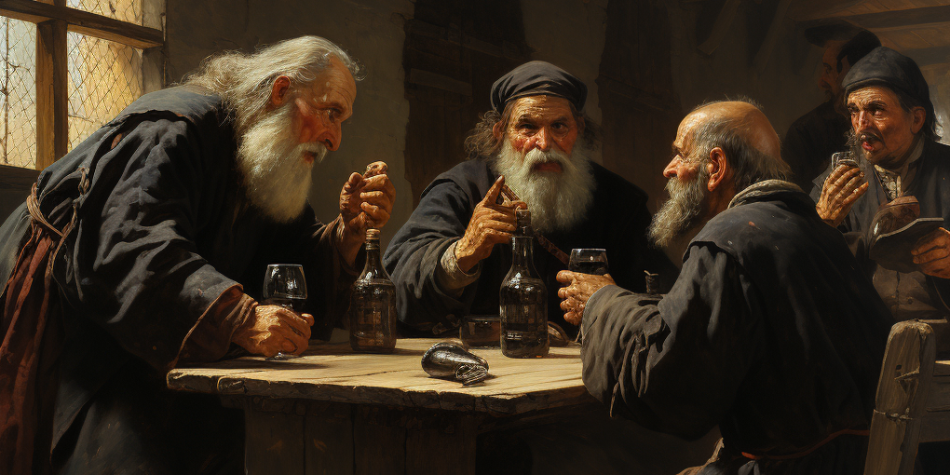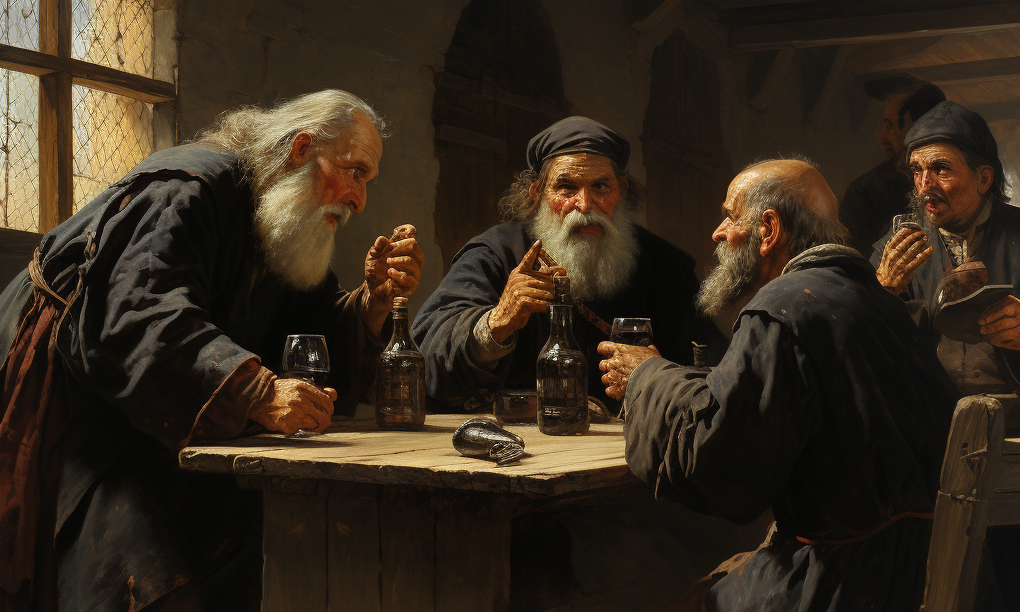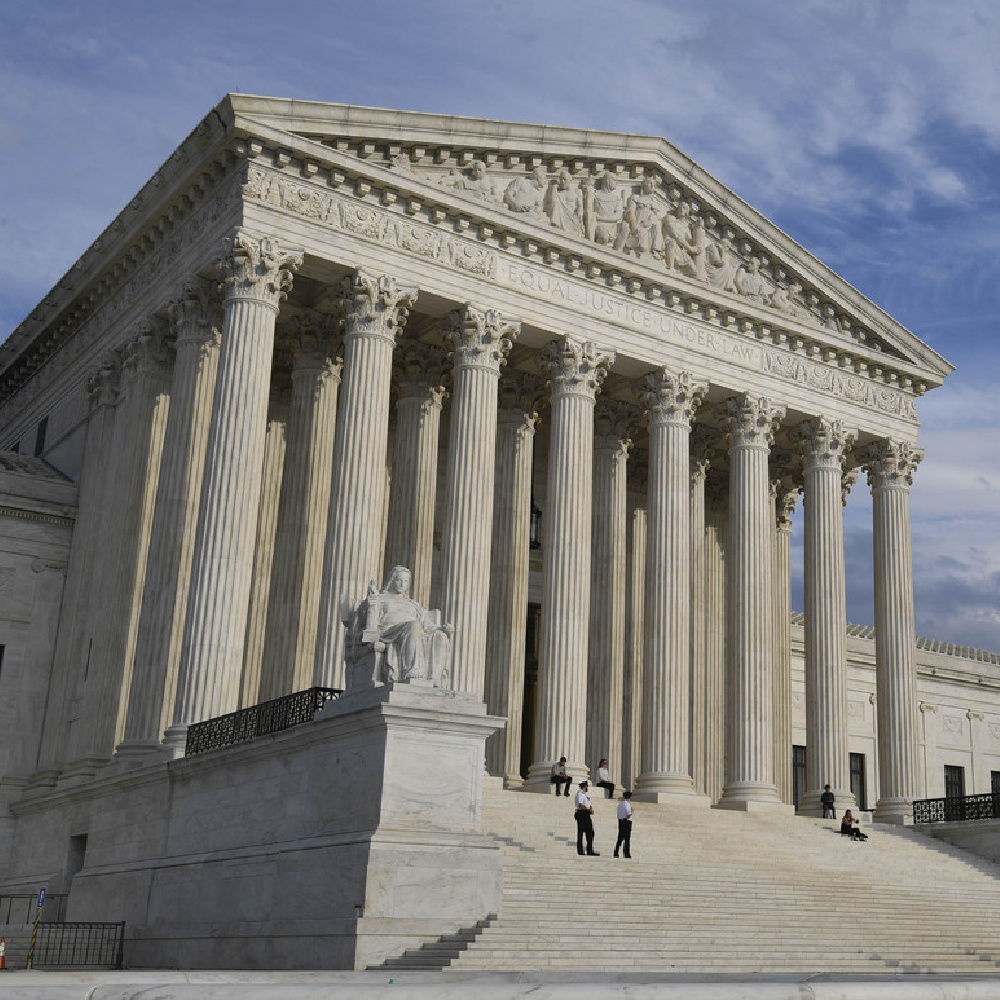A year ago, popular Catholic YouTube channel Pints with Aquinas showcased one of the most important lessons in religious epistemology, and they showcased it on accident, the hard way. The host, Matt Fradd, moderated a debate between Jeff Cassman and Peter Dimond on the question of sedevacantism—the idea that at some point in Catholic history, the seat (sede) of St. Peter became empty (vacante) as the office of pope became occupied by people who do not legitimately hold that title. In the sedevacantist view, Pope Francis and some number of his predecessors are not really popes due to their departure from the faith.
I say that Pints with Aquinas learned a hard lesson because, in their debate, the sedevacantist Peter Dimond simply destroyed the arguments of his opponent Jeff Cassman. It was one of the most lopsided debate victories in recent Catholic memory, and it led Fradd to record and air a lengthy justification for his decision to continue offering footage of the debate. Fradd’s explanation was a painfully awkward monologue intended to answer the complaints of many pope-affirming Catholics who were left reeling by the exchange.
If that episode was in any way a hard lesson for the host and viewers, then over time, they seem to have unlearned the lesson. And the lesson can be plainly stated in a single sentence: accusation is the epistemology of hell. In the debate on Pints With Aquinas, Catholics witnessed the immense power of a prolific accuser in Peter Dimond. When accusation is the primary element of one’s epistemology—their framework for seeking the truth—the basic underlying assumption is that a person or institution is not a reliable guide to the truth if bad things can be said about them.
Accusation is the epistemology of hell.
The power of accusation lies in its ability to poison our intuitions, which then leads our powers of logic and reason to be employed in the service of those poisoned intuitions. In the Book of Mormon, this process is allegorized in Lehi’s vision, where messaging from the great and spacious building leaves believers ashamed (a non-rational state of mind) and therefore unable to employ the same thought processes that had once been leading them toward the tree of life. Religious disaffection is usually a negative reprocessing of one’s past based on intuitions that have become poisoned by accusation.
Pints With Aquinas and other debate venues do their participants and spectators a disservice by offering the pretense that debates are a dispassionate exchange of “the facts.” As I indicated in another article, this is a typically male approach to epistemology, and it is misguided. Christian epistemology began with Christ’s observation to Peter that “flesh and blood hath not revealed it unto thee, but my Father which is in heaven.” Paul understood this and exclaimed, “…where is the disputer [debater] of this world?”. From the outset, Christianity never claimed to be a commitment to be embraced on the world’s intellectual terms—a commitment arrived at through the medium of debate.
Long predating Hobbes and Hume and Haidt, Christ pointed to the dominant role of intuitions in epistemology with his declaration that “A wicked and adulterous generation seeketh after a sign.” Sign-seeking always presents itself as a rational process for establishing the truth of claims that are offered in the realm of faith, but sign-receivers almost always demonstrate a marvelous capacity for rationalizing into oblivion any signs that they are given. When accusers engage believers and demand some universally empirically verifiable evidence for their faith, believers are correct to reply like a therapist: “Tell me, what’s really going on?” Because chances are, there is something.

For Latter-day Saints, this principle was perhaps best articulated in a 1994 article, “Text and Context,” written by Dan Peterson in the FARMS Review of Books. There, Peterson offers a long and thorough exploration of the reality of personal factors in shaping historiography, especially among religious critics. Countering the naïve claims of critics who often claim “objectivity” in their accusatory behavior toward the Church and its leaders, Peterson observed that “Human beings are not asocial, ahistorical, disembodied intellects. Clearly, considerations of the total personality of the individual advancing a theory, writing a book, or painting a picture may be entirely germane and legitimate in analysis of what that individual produces.”
Dan Peterson’s article has aged very well, as wide swaths of disillusionment have been cut through Christian communities by biblical scholars and researchers claiming “objectivity.” Scholars have formulated arguments against Christ’s resurrection and other elements of Christian sacred history, but much of the negative impact of the field of secular biblical studies could be blunted if people understood theologian Walter Wink’s insight that “People with an attenuated sense of what is possible will bring that conviction to the Bible and diminish it by the poverty of their own experience.” And it’s important to note that I first came across that quote and a robust discussion of its implications for scholarship in evangelical scholar Craig Keener’s wonderful book Miracles. In the flood of accusations toward our faith, ordinary Latter-day Saints are left without the kind of Latter-day Saint academic resources that we see among Evangelical scholars at Wheaton College and other places.
In discussing scholarship, I employ the term “accusation” very deliberately. When secular biblical scholars make counterclaims around sacred history, they do tend to arrive at some form of accusation, either direct or implied. Scholarly denials of the reality of the resurrection, for example, contain an embedded accusation against the early Christian community: they bore false witness about things they saw and heard. Scholars formulate sophisticated narratives that sometimes openly, often implicitly, accuse early Christians of forming a conspiracy to maintain a lie. Scholars in the field of secular biblical studies commonly refer to their craft as “biblical criticism,” and they are eager to explain that “criticism” in this context simply means a benign process of objective analysis. But in practice, their analyses tend to be rife with inferences that the ancients were not just misinformed in their judgments; not just creative and flexible in their approaches to historiography by modern standards; but outright dishonest and manipulative in their formulation of the biblical text. What are offered as benign scholarly analyses land in the mind of the average Christian as intuition-poisoning accusations.
There is an antidote to poisons of criticism and accusation, but it is not found in Matt Fradd’s address to his viewers after the debacle that was his debate on sedevacantism. His message was not a mea culpa; rather, he offered a rationale more along the lines of this is the price of doing business. Viewers of Pints With Aquinas learned the hard way that when you are in the business of accusation and counter-accusation, it is only a matter of time before the flood comes in your direction. The cost of doing business may be the poisoning of the faith of your viewers. And the antidote to these poisons of criticism and accusation is to see that these things sometimes have their place in discourse, but they are overrated as tools in truth-seeking, and utterly useless in leading people to God.
Don’t be unsettled by accusations.
The other mature assumption is that we are all biased in some way. Returning to biblical scholarship, the claim commonly held among secular scholars that religion causes a biased view of evidence, and lack of religion somehow eliminates that bias, just indicates a lack of self-awareness. In the field of biblical studies, secular scholars offer numerous competing claims on most every issue, yet only one view can be factually correct. This means that biblical scholars can and do claim “objectivity” while developing vast amounts of well-researched, well-documented, peer-reviewed, consensus-shaping analyses that are 1) the results of personal biases and 2) factually wrong, opposing the correct view. It is a rare biblical scholar who is willing to plainly acknowledge this depressing reality about the nature of their field.
Plainly stated to my fellow believers, don’t be unsettled by accusations designed to undermine your faith, because it is possible to formulate extremely powerful and poisonous accusations against souls and institutions that are good, up to and including the very God you worship. Furthermore, don’t be unsettled in your faith by critics’ appeals to rationality because it is possible to formulate narratives of reality that are at once rational and completely false. And greater intellectual gifts don’t automatically equate to a greater embrace of reality: as often as not, the greater one’s intellectual gifts, the more sophisticated his delusions.
In closing, I hope we and our Catholic friends at Pints With Aquinas can internalize their hard lesson about the nature of accusation and its tendency to backfire when it is misguidedly employed in Christian epistemology. For a theological final note, I appeal to C.S. Lewis, who said, “If we insist on keeping Hell (or even Earth), we shall not see Heaven: if we accept Heaven, we shall not be able to retain even the smallest and most intimate souvenirs of Hell.” A good indicator of our yearning for heaven is our willingness to let go of souvenirs of hell, like the faith-poisoning intellectual idols of criticism and accusation.
















